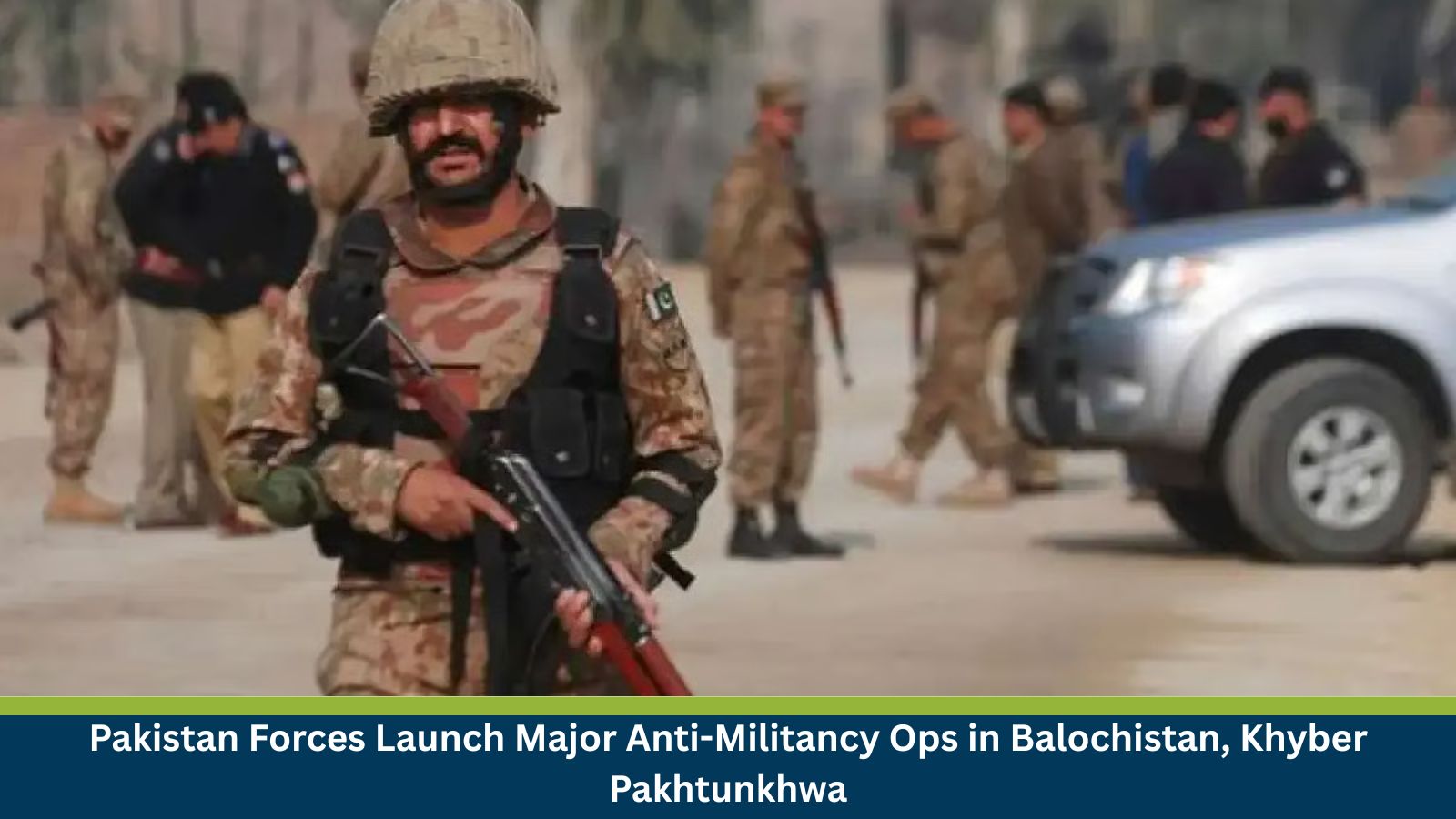What Is Happening in Pakistan?
From 07 to 11 August, Pakistan Army forces conducted a high-intensity counter-terrorism offensive in Balochistan province, killing 50 militants linked to the BLA and TTP. This decisive military operation focused on insurgent strongholds near strategic Chinese-backed mining projects, sending a strong message of zero tolerance for militant activity. Weapons, ammunition, and explosives were seized, further crippling insurgent capabilities.
In Bajaur district, a historically volatile area in Khyber Pakhtunkhwa, the military launched a targeted anti-militancy operation against suspected TTP hideouts. Authorities stressed that this operation was precisely targeted to minimise civilian casualties while dismantling militant command centres.
Key developments as of 13 August include:
- Nearly 100,000 civilians displaced from Bajaur due to security threats.
- A mortar attack in Mamund, Bajaur, killed two children and a woman; no group has claimed responsibility.
- Increased security force presence in both provinces to deter insurgent regrouping.
Why Are These Operations Happening?
The BLA and TTP remain two of Pakistan’s most dangerous insurgent organisations:
- Tehrik-e-Taliban Pakistan (TTP): A close ally of the Afghan Taliban, the group has escalated cross-border terrorism since the Taliban’s 2021 takeover of Afghanistan. Pakistan accuses the Afghan Taliban of providing safe havens for TTP militants, enabling them to plan and execute deadly attacks.
- Baloch Liberation Army (BLA): An ethnic Baloch separatist group notorious for targeting infrastructure projects linked to Chinese investments, especially under the multi-billion-dollar CPEC framework.
These security force operations are a strategic necessity to stabilise the western frontier, dismantle terrorist networks, and secure economic lifelines critical for Pakistan’s development.
Consequences Across Sectors and Communities
Security & Public Safety:
- Expanded military deployment in insurgency-prone districts.
- High risk of retaliatory militant attacks in both urban and rural zones.
- Ongoing threats to civilian safety from sporadic insurgent fire and improvised explosive devices.
Humanitarian Impact:
- Mass displacement in Bajaur, creating urgent humanitarian needs for shelter, food, and medical care.
- Vulnerability of border communities due to continued militant infiltration and cross-border attacks.
Economic & Infrastructure:
- Potential delays and interruptions to CPEC-linked projects.
- Increased security costs for companies operating in high-risk areas.
- Possible slowdown in resource extraction projects due to heightened security protocols.
Medium-Term Outlook: Preparing for Prolonged Counter-Militancy Operations
Pakistan’s counter-militancy drive is expected to continue aggressively, with Balochistan and Khyber Pakhtunkhwa remaining focal points. Anticipated measures include:
- Intensified military patrols and checkpoints in sensitive districts.
- Sustained strikes on militant hideouts near key infrastructure.
- Potential escalation in retaliatory attacks by BLA and TTP.
Stakeholder recommendations:
- Monitor official security updates from military and government channels.
- Reassess logistics routes and travel plans in affected provinces.
- Implement contingency strategies to ensure workforce safety and project continuity.
Stay Ahead of Threats with datasurfr Predict
MitKat’s datasurfr delivers accurate, real-time, and contextualised data to help organisations respond swiftly to physical, environmental, and cyber threats.
With datasurfr Predict, our AI Agent not only provides context for unfolding events but also analyses vetted historical data to forecast how events are likely to evolve and their potential impact using industry and location-specific probabilistic scores.
Book a free demo today and see how datasurfr Predict can transform your risk preparedness: https://mitkatadvisory.com/why-datasurfr/






